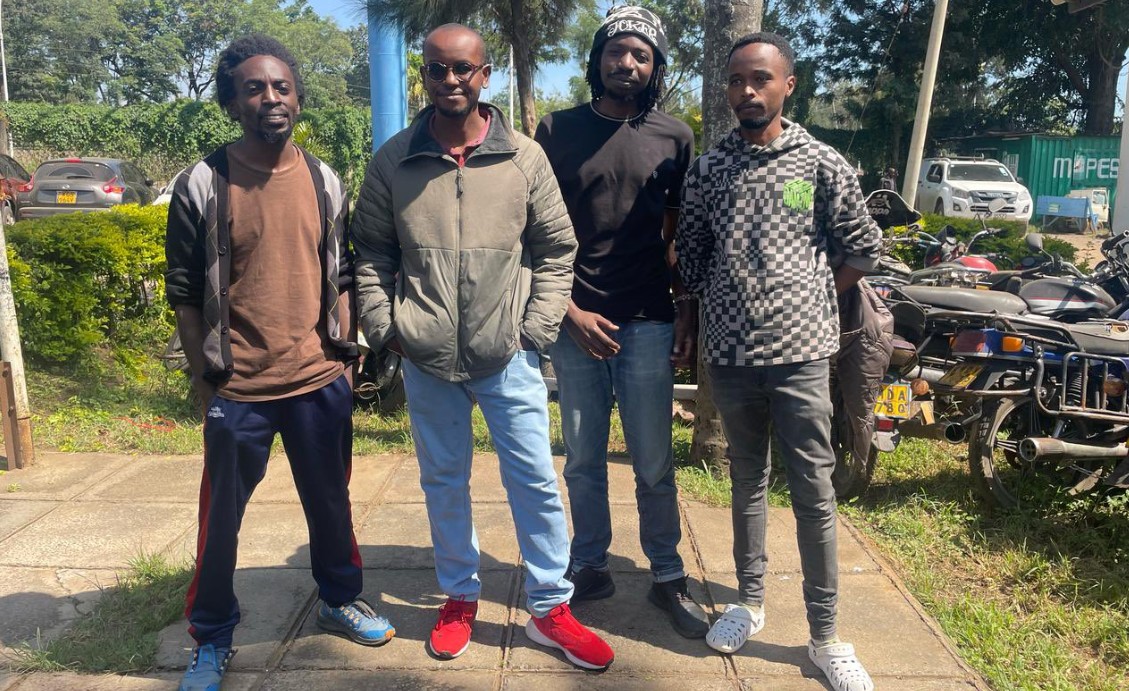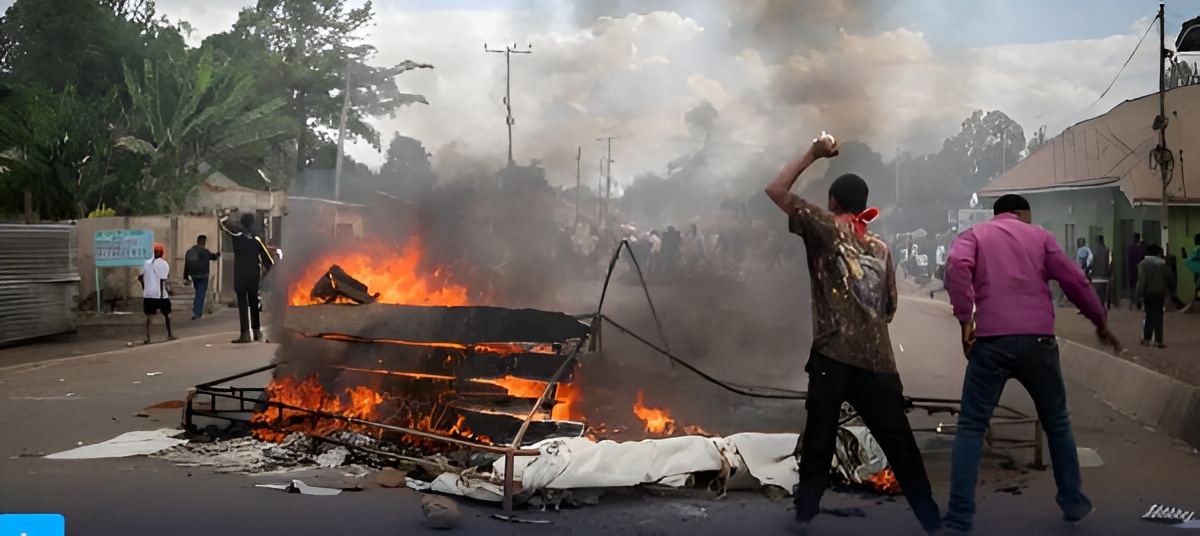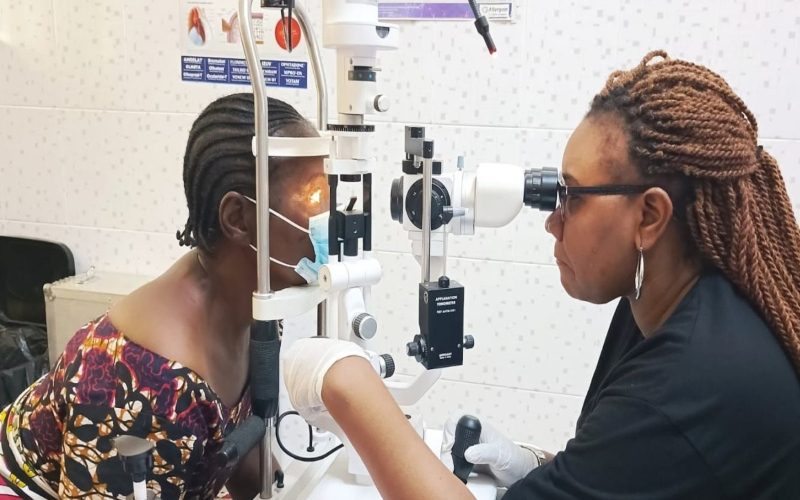Four filmmakers linked to BBC's Blood Parliament documentary released on Sh10,000 bail

LSK said the arrests was carried out without a clear explanation and that the applicants were compelled to sign a document acknowledging the seizure of their equipment and documents.
Four BBC filmmakers who were arrested in connection with the investigative documentary Blood Parliament have been granted anticipatory bail of Sh10,000 each by a Nairobi court.
The four, Nicholas Gichuki, Brian Adagala, Markdenver Karubiu and Christopher Wamae, were arrested last week and their electronic devices confiscated. They were later released on a free bond.
More To Read
- Court summons DCI officers over spyware found on BBC filmmakers' gadgets
- ‘Blood Parliament’ filmmakers allege spyware was planted on their phones while in custody
- Deputy Speaker Gladys Shollei lauds committees as Parliament’s ‘engine room’
- BBC responds to Murkomen’s allegations over Mai Mahiu documentary
- DPP orders DCI to probe Maai Mahiu child sex trafficking claims within 7 days
- DCI launches multi-agency operation in Maai Mahiu after BBC exposé on child sex trafficking
As part of the bail terms, the advocates representing the applicants are required to present them at the Directorate of Criminal Investigations (DCI) headquarters on May 21, 2025, for continued investigations.
The Law Society of Kenya, through their lawyer Senator Dan Maanzo, has maintained that the arrests were carried out without a clear explanation and that the applicants were compelled to sign a document acknowledging the seizure of their equipment and documents.
Appearing in court, their lawyer applied to have them given an anticipatory bail, saying that they were not furnished with reasons for their arrest or the nature of the investigation.
The court was told that they only learned, through an application filed on May 6, that the confiscation was allegedly linked to the Cybercrime Act and the production of Blood Parliament.
"This is a clear infringement on the constitutional rights of the applicants," said their lawyer, Dan Maanzo, who also argued that investigators failed to follow due process.
He further claimed that the continued retention of the filmmakers' devices without proper justification raised serious legal and ethical concerns.
The defence had urged the court to grant anticipatory bail and to set aside the DCI's miscellaneous application seeking to formalise the confiscation of the devices.
The case will be mentioned on May 28.
"Severe punishment"
This comes as the government is pushing for severe punishment against the four filmmakers accused of cyber harassment and publishing false information online.
According to documents filed in court by the Directorate of Criminal Investigations (DCI), the State intends to charge the four under sections 23 and 27 of the Computer Misuse and Cybercrime Act, 2018. If convicted, the four risk a fine of up to Sh20 million or a maximum prison term of 10 years.
Police linked the filmmakers to the Blood Parliament documentary, which aired recently on BBC Africa and BBC News Swahili platforms.
However, the British broadcaster has denied any association between the four and the production of the film.
BBC clarified last week that “the four filmmakers were not involved in the documentary.”
In an affidavit filed at the Milimani Law Courts, DCI officer Chief Inspector Nickson Kinyua said, “Preliminary investigations into the allegations are indicative that the suspects have conspired with the users of the YouTube Channel Accounts dubbed @BBCNewsSwahili and @BBCAfrica and the website/blog/domain Account bbc.com. They were used to orchestrate the stated offences online to the victims without any lawful excuse, for a while now, through the defamatory posts/publications.”
Inspector Kinyua further alleged that the content published on the platforms is “harmful” and has the potential to incite unrest among citizens and damage the reputation of independent constitutional offices.
“The respondents have caused unwarranted reputational damage, which is likely to tarnish the integrity and image of the institutions and continue to subject them to irreparable damages and pose a security risk,” he told the court, without naming the affected institutions.
“With such detrimental content depicting persons purporting to be advocating for justice without lawful excuse, while actually endangering public peace and safety, it necessitated the DCI, as per our mandate, to apprehend the suspects, confiscate the electronic communication gadgets/items of evidential value and submit them for digital forensic analysis.”
Their lawyer, Ian Mutiso, claimed that his clients still have no idea why they were arrested, despite responding to the DCI summons.
“The Respondents have already demonstrated their malicious intent and clear disregard of the rule of law by abusing the due process as evidenced by the electronic evidence provided under the certificate of electronic evidence which clearly shows that the Respondents herein did not have justifiable cause and that their actions were meant to cow the Applicants to consent to allegations of false publication,” he told the court.
He condemned what he termed as the growing intimidation of creatives and journalists following the summoning of the filmmakers.
He vowed to accompany the filmmakers to the DCI headquarters on May 21, insisting that the documentary reflects a historical truth and that those involved will not back down in the face of pressure.
Mutiso said the film is part of Kenya’s national record and questioned the motive behind the DCI’s recent actions.
“The Blood Parliament is a piece of history for this country, so whatever was documented on that day, it’s part of the history. The publication of that particular documentary is not false,” he said.
He criticised the DCI for unlawful arrests and detentions, claiming that those involved have not been informed of the charges or provided with legal counsel. He insisted that the legal team would seek answers on the nature of the charges and evidence.
He warned that the state’s actions could set a dangerous precedent, hinting that even prominent legal figures may be targeted for their involvement or support of the filmmakers.
“If whoever was part of that documentary is being targeted, does it mean they are also targeting the president of the Law Society of Kenya? We’ll be here, and we’re not backing down,” he added.
Mutiso said the situation points to a disturbing disregard for constitutional protections under the current administration, particularly the Bill of Rights and the freedom of the press.
“We are living at a time whereby the Bill of Rights, it seems that it’s something which is not mandatory to the current regime and the government, and especially the offices who are conducting these illegal arrests and illegal detentions,” he said.
He further faulted the DCI for confiscating equipment from the filmmakers without following the proper legal procedures.
“The DCI coming to court and filing a disconnect application after they’ve already confiscated the gadgets—that’s not due process. The due process is that they’re supposed to investigate, make a formal application, then confiscate the gadgets,” he said.
Calling the actions “unfortunate and very embarrassing,” Mutiso emphasised that lawyers have a duty to uphold the law and stand against such breaches.
“It’s very important that we, as the Law Society and as lawyers, remain custodians of the law. We must ensure that due process is followed,” he said.
The lawyer reiterated that civil society and legal advocates will continue speaking out and defending constitutional freedoms in the face of intimidation.
The application for anticipatory bail is currently awaiting determination.
Top Stories Today















































